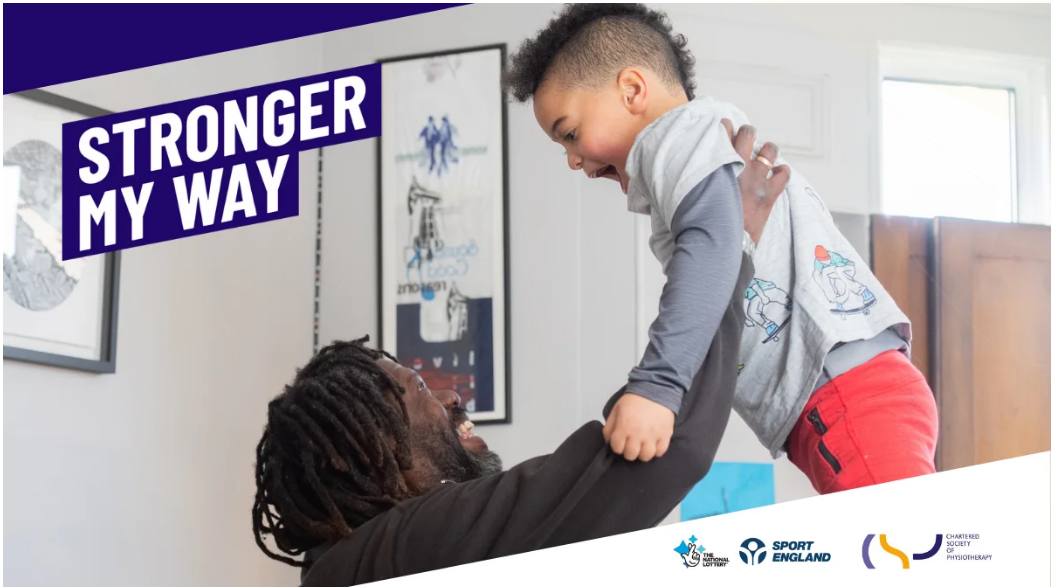 by Karen Middleton, chief executive of the Chartered Society of Physiotherapy
by Karen Middleton, chief executive of the Chartered Society of Physiotherapy
The chief medical officer’s recommendation to strengthen on at least two days of the week is sometimes referred to as ‘the forgotten guideline’. It is frequently overlooked in favour of its more aerobic activity-based cousin, not least by healthcare professionals. As a consequence, too few people meet the guideline despite it being critical for quality of life and particularly for people living with a long-term condition.
The pandemic, which brought high levels of inactivity during lockdowns and other changes in behaviour, has exacerbated what is becoming known in healthcare circles as ‘the deconditioning challenge’.
We spent a year listening to people with lived experience to understand their perceptions, beliefs, barriers and motivations when it came to getting stronger. We also conducted a parallel process with physiotherapy staff and other stakeholders to find out what they needed to support increased participation. We found people living with a health condition had a lack of confidence and knowledge in how to get started, but also a powerful fear that strengthening could damage them and make their condition worse.
 These are commonly-expressed views when it comes to physical activity more generally, but we found the fear factor to be especially present when it came to strengthening. Encouragingly, however, there was also an interest in hearing more and a solid trust in healthcare professionals as the messenger. On the professionals’ side, there was a desire for consistent messaging to use with patients, backed up by resources and training that could help an initial spark of interest develop into a regular habit.
These are commonly-expressed views when it comes to physical activity more generally, but we found the fear factor to be especially present when it came to strengthening. Encouragingly, however, there was also an interest in hearing more and a solid trust in healthcare professionals as the messenger. On the professionals’ side, there was a desire for consistent messaging to use with patients, backed up by resources and training that could help an initial spark of interest develop into a regular habit.
That’s why we’re so delighted to launch Stronger My Way, a behaviour change campaign to help healthcare professionals empower their patients to do strengthening on a more regular basis. The campaign, supported by National Lottery funding distributed by Sport England, is built around a hub on the CSP website with two entry points – one for the public and one for professionals.
On the professionals’ side, the hub offers:
- The evidence for strengthening and how to discuss it with patients
- Signposting to the best training for behaviour change, motivational interviewing, health coaching and shared decision-making
- Resources, such as videos and a goal-setting planner, to support your conversations with patients
- Guides and case studies on understanding health inequities and delivering culturally competent services.
On the public side, people living with long-term conditions can access:
- Introductory videos demonstrating how to get started with strengthening exercises
- Articles delivering reassurance and advice that it is safe and beneficial for quality of life
- Relatable case studies of others who have benefited from getting stronger their way
- Resources to help them track their progress and fit strengthening into their daily lives.
The site has been co-produced with people with lived experience, including on the team writing content, and tested significantly with both audiences.
It signposts extensively to resources and guides from other organisations, including ARMA, to ensure we offer professionals the best materials out there, while bringing it all together around a central narrative of how to help people get stronger.
Please do visit the site and share the resources so we can help more people living with a long-term condition get stronger, their way.
